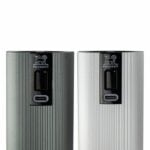BMW and Mini could move to the so-called agency distribution model in Europe, confirmed the head of sales and marketing of the BMW Group, Pieter Nota.
cX.callQueue.push ([‘invoke’, function() {
googletag.cmd.push(function() { googletag.display(‘div-gpt-ad-1567191399789-0’); });
}]);
Autohaus magazine reported that BMW planned to end the dealer dealership in Europe in 2024 for the Mini and from 2026 for the main BMW brand and instead rely on the agency’s sales for new cars.
The note said that the plan is still under discussion and that the agency model could be applied to the BMW and Mini brands, but not to the company’s Rolls-Royce ultralux brand, which will remain with the current franchised dealer model.
cX.callQueue.push ([‘invoke’, function() {
googletag.cmd.push(function() { googletag.display(‘div-gpt-ad-1567191803621-0’); });
}]);
Premium competitors of BMW, Mercedes-Benz and Audi (e-tron electric cars only) move to the agency model, in which carmakers relate directly to potential customers and hold inventory, while dealers receive a flat fee for each vehicle sold.
The model of the agency will be used only in Europe, said Nota. China is not on the table right now, he added, and it is not possible in many US states where franchise laws prohibit carmakers from selling directly to consumers.
BMW was one of the first car manufacturers to implement an agency model in Europe when it launched sub-brands for electrified cars in 2013. Although BMW abandoned this sales model a few years later, it began testing the agency model on its full range from South Africa in 2020.
cX.callQueue.push ([‘invoke’, function() {
googletag.cmd.push(function() { googletag.display(‘div-gpt-ad-1571296839761-0’); });
}]);
“If we move to the agency model, this time it will be for the full range,” said Nota.
Agency versus franchise
In the current franchise retail model, dealers buy stocks from car manufacturers and bear the costs of promotion and holding stocks. They make a profit from the margin of the vehicles sold, but this may vary depending on the negotiations with individual customers.
The agency model transfers a large part of these costs to car manufacturers. Dealers would receive a flat fee per vehicle sold, comparable to a commission.
They would earn less money per vehicle, but would make up for the difference without having to pay expensive inventory and promotion costs, say automakers.
cX.callQueue.push ([‘invoke’, function() {
googletag.cmd.push(function() { googletag.display(‘div-gpt-ad-1571296992887-0’); });
}]);
The agency model is expected to offer the consumer a transparent and equal price between online sales and contracts signed at a dealership. Car manufacturers say that such standard prices will reduce the discounts offered by independent online markets and eliminate competition between dealers of the same brand, which can also lead to increased discounts.
VW Group, Stellantis
In addition to Mercedes and Audi, a number of other carmakers selling in Europe have signaled their intention to move to the agency model, partly to reduce distribution costs and also to have more control over the process. sale.
Stellantis, created in 2021 by the merger of the PSA Group and Fiat Chrysler Automobiles, intends to move to a “non-genuine” hybrid agency model that it calls “retailers” starting in June 2023 with the premium brands Alfa Romeo, DS and Lancia, as well as for light commercial vehicles at Citroen, Fiat Professional, Opel / Vauxhall and Peugeot.
The Volkswagen Group uses an agency model only to sell electric vehicles for the ID range of the VW brand and for Audi, and the Spanish brand Cupra changes to a non-original model. Polestar, co-owned by Volvo Cars and Geely, launched in Europe in 2021, applying an agency model.
cX.callQueue.push ([‘invoke’, function() {
googletag.cmd.push(function() { googletag.display(‘div-gpt-ad-1571297016967-0’); });
}]);

 Renault’s compact family SUV will be called the Symbioz -.
Renault’s compact family SUV will be called the Symbioz -. Peugeot and its new range of salt and pepper mills -.
Peugeot and its new range of salt and pepper mills -. A new Uber Eats ad is being criticized for showing a peanut allergy -.
A new Uber Eats ad is being criticized for showing a peanut allergy -. Pagani announces new track-based hypercar, known as the Huayra R Evo -.
Pagani announces new track-based hypercar, known as the Huayra R Evo -. Introducing the Oscars in the Best Casting category -.
Introducing the Oscars in the Best Casting category -.